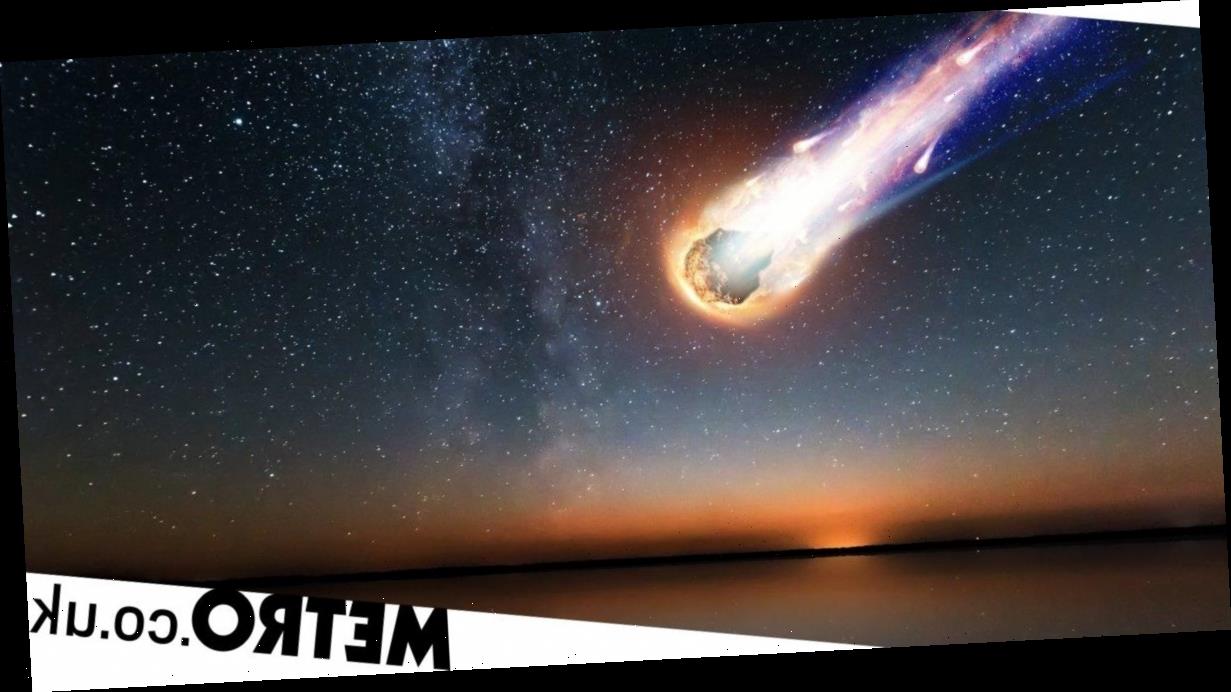Scientists have blamed the demise of several ancient civilisations on a ‘meteor hurricane’ caused by a dying comet.
In about 2350BC, there was a ‘near-simultaneous’ collapse which saw great societies crumble and the Middle East plunged into a dark age.
This resulted in the demise of the mighty Akkadian civilisation, which was founded by Sargon of Akkad and is sometimes called the first empire in history.
Researchers have now suggested this apocalypse may have been caused by an encounter with the debris thrown out by a disintegrating comet.
If a similar event took place today, modern human civilisation could be utterly destroyed and billions would die of starvation.
We all know about the risk posed by asteroids, which tend to be relatively solid and make from rock or metal. But comets are also very dangerous.
They are huge, sometimes loosely packed clumps of ice and gas which fall apart as they are heated by the sun or are involved in some other event, such as a collision with other objects.
This can lead to the creation of a huge amount of material which can grow to the size of Earth ‘within days’, a new study has warned.
Our planet is much more likely to travel through the debris than it is to plough right into the comet’s nucleus. Nonetheless, this encounter can have ‘significant terrestrial effects’.
Fragments of rock or other material could rain down on Earth, starting fires and throwing so much soot into the air that the sun is blocked out.
They can also ‘dust’ the skies by dumping huge amounts of material into the atmosphere, which would also blot our star’s lifegiving light.
Both processes would reduce temperatures across the planet.
Without light, there can be no photosynthesis and plants can longer grow, meaning it impossible for human civilisations to grow crops to feed people or animals.
In a paper published in the Monthly Notices of the Royal Astronomical Society, researcher W.M. Napier of Armagh University, Northern Ireland, wrote: ‘Studies of Earth’s history over the last 150,000 years have revealed that the climate is subject to sudden temperature changes, with transitions often taking place within decades or even a few years.
They added: ‘In modern times, a sudden global cooling of this kind would have a calamitous effect on agriculture.
‘The abrupt collapse of the Akkadian and other civilisations around 4,170 years before present has been attributed to a shift to more arid conditions, driving subsequent societal and political collapse.’
The author suggested this could have been caused by an encounter with a comet that was breaking apart to form Comet Encke – an object whose debris causes the Taurids meteor shower.
This may also have caused another mysterious cataclysm which took place in an era called the Younger Dryas Boundary roughly 12,800 years ago and left platinum-rich dust and glassy beads scattered around the world.
This event is likely to have been caused by a comet which sparked huge ‘global wildfires’, burning up to 10% of the planet’s biomass and causing mass extinctions around the world.
‘I have modelled the disintegration of a large comet… using Comet Encke as an archetype and find there is a reasonable expectation of one or more brief ‘meteor hurricanes’ with intensities far beyond modern experience,’ the scientist added.
‘Enough… smoke may be created during such encounters to generate sudden coolings of some years’ duration, along with widespread wildfires.
‘The terrestrial upsets at the onset of the Younger Dryas Boundary of 12,900 before present and the simultaneous collapse of early civilisations around 2350BC may have been triggered by events of this character.’
The Akkadian Empire was a great civilisation centred around Akkad in Mesopotamia.
It was founded by Sargon of Akkad – which is now the name of a famous right-wing YouTuber – and flourished for almost two centuries before collapsing in the 22nd century BC.
Source: Read Full Article

